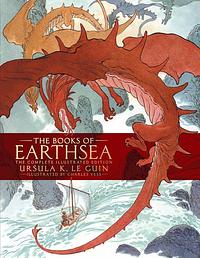Take a photo of a barcode or cover
blindmanbaldwin's Reviews (69)
Since I bought a physical copy of the United Nations charter, I'm adding it here.
The beginning of the preamble is one of the most beautiful and aspirational sentiments in human history. The fact our entire lives aren't oriented in service of this ideal is a failing caused by our greed and fear:
WE THE PEOPLES OF THE UNITED NATIONS DETERMINED to save succeeding generations from the scourge of war, which twice in our lifetime has brought untold sorrow to mankind, and to reaffirm faith in fundamental human rights, in the dignity and worth of the human person, in the equal rights of men and women and of nations large and small, and to establish conditions under which justice and respect for the obligations arising from treaties and other sources of international law can be maintained, and to promote social progress and better standards of life in larger freedom...
The beginning of the preamble is one of the most beautiful and aspirational sentiments in human history. The fact our entire lives aren't oriented in service of this ideal is a failing caused by our greed and fear:
WE THE PEOPLES OF THE UNITED NATIONS DETERMINED to save succeeding generations from the scourge of war, which twice in our lifetime has brought untold sorrow to mankind, and to reaffirm faith in fundamental human rights, in the dignity and worth of the human person, in the equal rights of men and women and of nations large and small, and to establish conditions under which justice and respect for the obligations arising from treaties and other sources of international law can be maintained, and to promote social progress and better standards of life in larger freedom...
Since I bought a physical copy of the UDHR, I'm adding it here.
I do not care how much all nations have failed to live by the obligations in this document. For one philosophical reason, the Universal Declaration of Human Rights stands as a radical text — it binds sovereignty of the state. Westphalian sovereignty led to many of the world shrugging their shoulders at atrocities, thinking that a government could do whatever it wanted to its people. This document changed the philosophy around that. A state had obligations to its public that it could not violate, and it cannot hide behind a veil of sovereignty to protect it. The time for the nation-state is over but unfortunately I fear we will have much, much more suffering before we realize this and move beyond our fear of our neighbor.
I do not care how much all nations have failed to live by the obligations in this document. For one philosophical reason, the Universal Declaration of Human Rights stands as a radical text — it binds sovereignty of the state. Westphalian sovereignty led to many of the world shrugging their shoulders at atrocities, thinking that a government could do whatever it wanted to its people. This document changed the philosophy around that. A state had obligations to its public that it could not violate, and it cannot hide behind a veil of sovereignty to protect it. The time for the nation-state is over but unfortunately I fear we will have much, much more suffering before we realize this and move beyond our fear of our neighbor.
Quick summary of a variety of independent discoveries finding more in the randomness than just randomness. None of this is particularly developed (a plus for laypeople readers like me!), with a lot of it taking place a decade or so removed from the books publication so much of it reads as proof-of-concept. Interesting ideas here, with a couple of beautiful passages on serendipity.
Perhaps more of a background in philosophical determinism and libertarianism would have been helpful before reading a commentary on the topics, but even as an ignorant individual I gained from reading it.
Comprehensive in its translation and adaptation to a different culture. Engaging project that represents a more ideal path instead of the history of forced conformity.
#BringItIn Family on three
Gives a lot of valuable historical context on the Apocalypse, but devotion to literalism means no exploration of the metaphor within the text.
Monumental of a task to review all of these as a collective work, particularly when read over an extended time horizon, but the impression left on me by "The Books of Earthsea" is a mellowness. Yes, there are horrific and events that occur throughout these books — but there is just as much (if not more) routine and minute events. We get the small lives, the boring lives. The stuff that makes the world turn. Yes there are grand wizards and dragons and epic quests. But there are also little villages and moments of domestic strife. There is doubt not just on the role of "Hero" but doubt on the role as "human". This interplay works to great effect.
A few interesting ideas (bulk of the public is exposed to police and prosecutors through film/TV and not reality), but the author has a rigid definition of "political film" that limits the creativity and efficacy of his arguments. A good survey of filmed politics but not necessarily politics in film.






